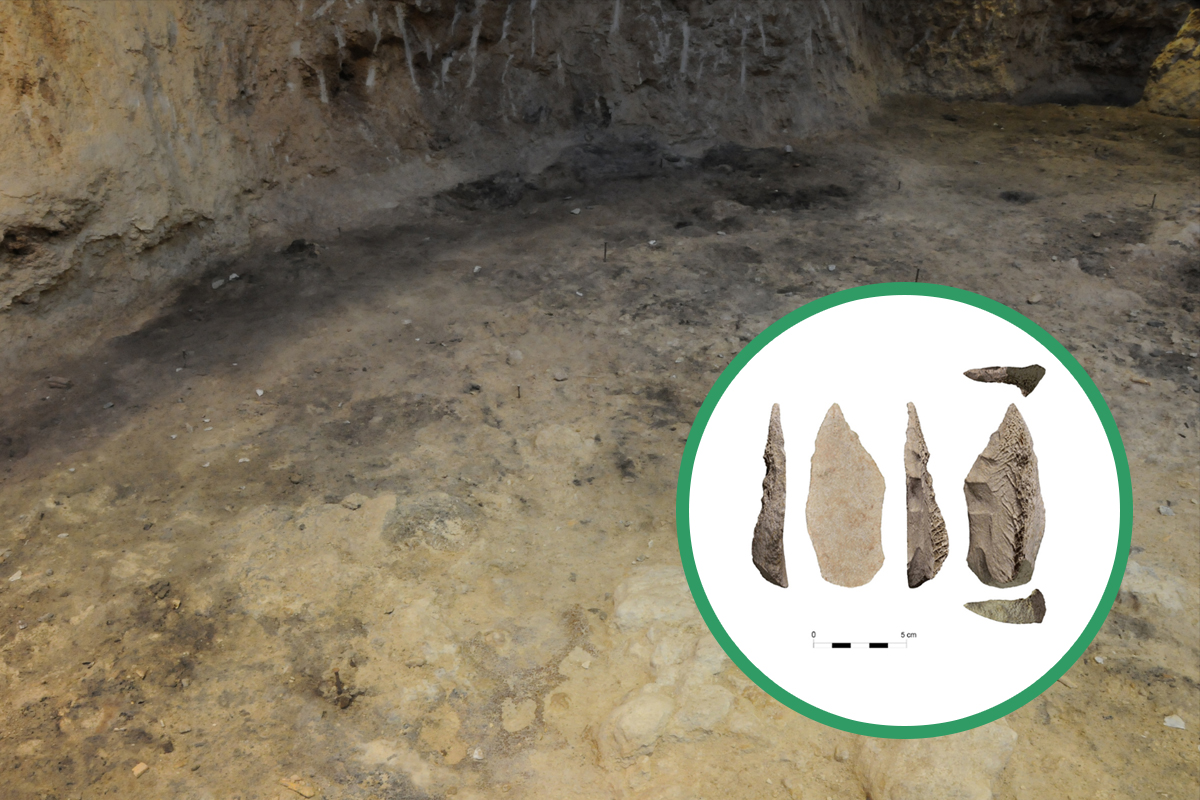Archaeologists from IPHES-CERCA have unearthed a 50,000-year-old spearhead during excavations near Capellades, Spain.
The discovery was made at the Abric Romaní archaeological site, a large rock shelter located on the north side of the Cinglera del Capelló.
Previous excavations of the rock shelter interior have uncovered archaeological assemblages from the Middle Palaeolithic and evidence of Neanderthal occupation.
A new study published in the journal Scientific Reports has identified traces of animal bones used as raw materials for tool production, including a 50,000-year-old spearhead made from horse bone.
The spearhead shows clear signs of intentional carving, in addition to the presence of wear marks and an impact fracture at the tip.
According to the archaeologists, this marks the first discovery of Neanderthals on the Iberian Peninsula using animal bones to manufacture spear points. Computed microtomography has also identified internal fractures that likely occurred from an impact.
This research is significant because it demonstrates that Neanderthals extensively utilised available animal resources, not just for nutrition, but also for hunting.
The study, led by Mateo-Lomba, provides an in-depth interdisciplinary analysis that combines technological, taphonomic, and functional perspectives, enabling the identification of evidence related to the manufacture, handling, and use of these tools.
According to Mateo-Lomba “this discovery contributes to our understanding of Neanderthal hunting behaviour and the importance of bone tools in their technological repertoire”.
In this sense, he adds that “the flexibility and adaptability of Neanderthal technology is highlighted, providing evidence of a bone technology, which is sometimes hidden in the archaeological record, and offering valuable data on their hunting strategies during the Middle Palaeolithic”.
Header Image Credit : IPHES-CERCA
Sources : IPHES-CERCA





